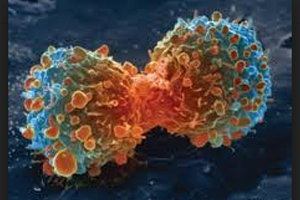- Home
- Editorial
- News
- Practice Guidelines
- Anesthesiology Guidelines
- Cancer Guidelines
- Cardiac Sciences Guidelines
- Critical Care Guidelines
- Dentistry Guidelines
- Dermatology Guidelines
- Diabetes and Endo Guidelines
- Diagnostics Guidelines
- ENT Guidelines
- Featured Practice Guidelines
- Gastroenterology Guidelines
- Geriatrics Guidelines
- Medicine Guidelines
- Nephrology Guidelines
- Neurosciences Guidelines
- Obs and Gynae Guidelines
- Ophthalmology Guidelines
- Orthopaedics Guidelines
- Paediatrics Guidelines
- Psychiatry Guidelines
- Pulmonology Guidelines
- Radiology Guidelines
- Surgery Guidelines
- Urology Guidelines
New blood test can predict kidney cancer risk five years prior to diagnosis

A New blood test can predict kidney cancer risk five years prior to diagnosis and also survival in these cases. Clear cell kidney cancer is the most common form of kidney cancer onset of which may be predicted by the new biomarker .
The new biomarker Kidney-injury-molecule-1 (KIM-1) can be detected in the urine and blood and is generally present at low levels in healthy individuals. Prior research by leaders at Brigham and Women's Hospital has shown that KIM-1 is an important and highly predictive marker for kidney injury. In a new study published in Clinical Cancer Research, BWH investigators, along with colleagues from Beth-Israel Deaconess Medical Center, explore whether a blood test can detect higher concentrations of KIM-1 in patients who will go on to develop kidney cancer up to five years later. Their results show that KIM-1 substantially helped distinguish between those who went on to develop kidney cancer from those who did not.
"Early detection of kidney cancer can be lifesaving. We can cure kidney cancer when we detect it at an early stage, but patients with advanced kidney cancer have a very high death rate," said Venkata Sabbisetti, Ph.D., a research faculty member in the BWH Renal Division. However, kidney cancer is asymptomatic and many patients present with advanced kidney cancer at the time of diagnosis. Our results suggest that with further refinement, KIM-1 has the potential to identify patients with early, curable kidney cancer."
Sabbisetti and colleagues measured KIM-1 concentrations in samples from patients enrolled in the European Prospective Investigation into Cancer and Nutrition (EPIC). The team compared KIM-1 levels from 190 participants who went on to develop RCC within the next five years to 190 matched participants (same age, body mass index, smoking status, etc.) who remained healthy. In samples with detectable levels of KIM-1, the average concentration was double in those who would develop kidney cancer.
The team reported that adding KIM-1 to a model for predicting kidney cancer risk approximately doubled the accuracy of that model. KIM-1 was substantially more sensitive for kidney cancer detection than prostate-specific antigen is for prostate cancer. However, given how much rarer RCC is, the researchers noted that KIM-1 should be measured along with another kidney disease-specific markers to be useful for early detection in the general population.
"We envision that KIM-1 will be useful in settings where the risk of kidney cancer is higher, such as patients undergoing abdominal CT scanning, where KIM-1 could be used to stratify risk of RCC," the authors wrote. "This will be particularly important given the rise of routine CT scans and the strong association between the number of CT scans and number of nephrectomies performed at the regional level in the U.S., indicating a substantial burden of overdiagnosis."

Disclaimer: This site is primarily intended for healthcare professionals. Any content/information on this website does not replace the advice of medical and/or health professionals and should not be construed as medical/diagnostic advice/endorsement or prescription. Use of this site is subject to our terms of use, privacy policy, advertisement policy. © 2020 Minerva Medical Treatment Pvt Ltd